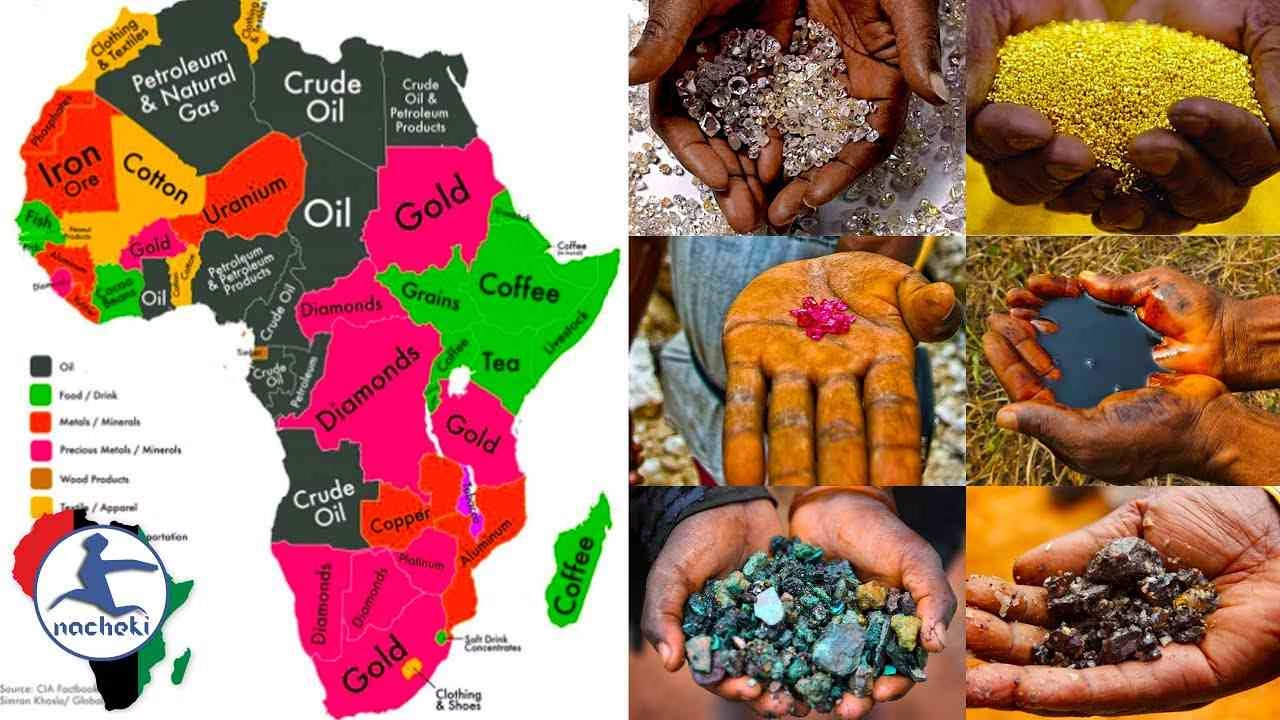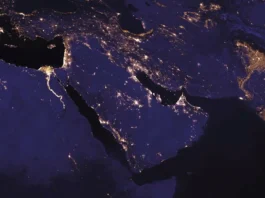Introduction: The Lie We’ve Been Sold
From school textbooks to news headlines, the same misleading narrative is repeated: Africa is the world’s poorest continent. A land plagued by famine, disease, and hopelessness dependent on foreign aid and handouts. But what if this image is not just inaccurate, but deliberately constructed? What if Africa was never poor, but was systematically impoverished through exploitation?
To uncover the truth, we must revisit Africa’s hidden history the story they’ve tried to erase.
Rich Before the Chains: Africa’s Glorious Past
Long before colonial invaders set foot on African soil, the continent was home to some of the world’s most advanced civilizations. Empires like Mali, Ghana, Songhai, and Great Zimbabwe thrived economically, politically, and culturally.

- Timbuktu, in modern-day Mali, was a global center of learning, housing ancient manuscripts and universities while Europe was still in the Dark Ages.
- Mansa Musa, the 14th-century ruler of Mali, remains the richest person in recorded history. His pilgrimage to Mecca flooded economies with so much gold that it caused inflation in the Middle East.
- Africa was abundant in gold, diamonds, ivory, salt, fertile land, and sophisticated trade networks.
The myth of African poverty didn’t exist because it wasn’t true.
So, how did this false narrative begin?
Colonialism: Theft Disguised as “Civilization”
Colonialism was never a noble mission to “civilize” Africa. It was a coordinated system of theft and exploitation. The Berlin Conference of 1884-1885 saw European powers carve up Africa without African consent, leading to:
- Mass extraction of raw materials to fuel Europe’s Industrial Revolution.
- Artificial borders that ignored ethnic groups, sowing seeds for future conflicts.
- Destruction of local economies, replaced with exploitative systems benefiting colonizers.
- Erasure of African history, replacing it with a false narrative of backwardness.

Colonialism didn’t just steal resources it stole time, identity, and self-determination. Worse, it made Africans internalize the lie that they were always poor.
Independence? Only on Paper
By the mid-20th century, most African nations gained political independence, but economic freedom remained out of reach. Colonial powers never truly left they simply changed tactics:
- Neocolonialism: Western corporations and governments maintained control through puppet leaders and unfair trade deals.
- IMF & World Bank Loans: Structural Adjustment Programs (SAPs) forced African nations to privatize public services, cut social spending, and open markets to foreign exploitation.
- Corrupt Elites: Many African leaders, propped up by foreign powers, siphoned national wealth while their people suffered.
Africa wasn’t poor it was being looted continuously.
Media & the Manufacturing of Poverty
Every image of a starving African child, every charity campaign, and every Hollywood movie set in a “helpless” African village reinforces the same false message: Africa is poor and needs saving.
Why is this narrative so persistent?
Because it benefits those in power.
- If Africa is seen as “poor,” foreign aid looks like generosity not a tool of control.
- Western governments appear as saviors not exploiters.
- No one questions why billions in African wealth flow out while its people remain impoverished.
The poverty myth isn’t just wrong it’s dangerous. It justifies exploitation and erases accountability.
The Role of Education in Perpetuating the Poverty Narrative
Education systems in many African nations remain a powerful yet underexamined mechanism in the perpetuation of the poverty narrative. Designed during colonial times and largely unchanged post-independence, these systems often prioritize Western knowledge while sidelining Africa’s rich pre-colonial history, scientific advancements, and philosophical contributions.
In many schools across the continent, African students grow up learning more about European revolutions than about the empires of Mali, Songhai, or Great Zimbabwe. The legacy of ancient African knowledge in fields like architecture, astronomy, and medicine is rarely discussed. This omission subtly instills the idea that Africa’s past was devoid of intellectual and cultural sophistication reinforcing the perception of a continent that was always behind.
The poverty narrative thrives in this vacuum. If a generation grows up never hearing about Africa’s wealth, its innovation, or its leadership in ancient global trade, it becomes easier to accept the myth that poverty is the natural state of the continent.
To break this cycle, educational reform is essential. African curricula must reclaim their own stories highlighting the power and prosperity of the continent before colonial disruption. By fostering a sense of pride and historical truth, education can become a revolutionary tool for mental and social liberation. A people who know their worth are much harder to deceive, manipulate, or impoverish.
The Hidden Cost of “Aid”
Many believe foreign aid helps Africa, but most aid comes with strings attached:
- Contracts go to Western companies, not local businesses.
- Consultants are flown in from donor countries, not hired locally.
- Loans must be repaid with interest, trapping nations in debt.
In reality:

- Africa loses more money through illicit financial flows, tax evasion, and unfair trade than it receives in aid.
- Aid is not charity it’s a control mechanism.
The Impact of Global Financial Systems on African Economies
While foreign aid is often presented as benevolent support, the deeper economic trap lies in the global financial systems that dictate the terms of development. Institutions like the International Monetary Fund (IMF) and the World Bank have long imposed financial frameworks that prioritize debt repayment over domestic growth, locking African nations into cycles of dependency.
Structural adjustment programs (SAPs), introduced in the 1980s and 1990s, forced African governments to cut spending on healthcare, education, and infrastructure in exchange for loans. These programs emphasized privatization, currency devaluation, and open markets—policies that often benefited foreign corporations more than local populations.
The result? Economies skewed toward export-oriented production, reduced public services, and increased poverty. Countries like Zambia and Ghana, for instance, were left with crumbling public sectors and mounting debt despite complying with IMF prescriptions.
Moreover, interest payments on external debt continue to siphon billions from African economies each year—money that could otherwise be invested in development. According to some estimates, Africa pays more in debt servicing than it receives in aid, flipping the narrative of generosity on its head.
True economic liberation requires African countries to reclaim control over their fiscal policies, renegotiate unjust debt terms, and explore alternative financial models—including regional banks, pan-African trade, and self-sustaining development strategies.
Until then, the global financial system will continue to act as a modern form of economic colonization—draining wealth while disguising itself as help.
Natural Wealth, Foreign Profits
Africa is rich in everything the modern world needs:

- Cobalt (60% of the world’s supply, vital for batteries)
- Oil, gold, diamonds, lithium, fertile land
- A young, vibrant workforce
Yet, the profits don’t stay in Africa:
- Congo holds vast cobalt reserves but remains one of the poorest nations.
- Nigeria is Africa’s top oil producer, yet most citizens live in poverty.
- South Africa has immense mineral wealth, yet extreme inequality persists.
The wealth is real. The poverty is manufactured.
A Continent Rising – But Silently
Despite systemic exploitation, Africa is reclaiming its future:

- Tech startups are booming in Nairobi, Lagos, and Accra.
- African artists and filmmakers are telling their own stories.
- Movements for economic justice, land reform, and Pan-African unity are growing.
But you won’t see this on mainstream news because the world prefers Africa silent and dependent.
Reclaiming the Narrative: What You Can Do
If we want justice for Africa, we must change the story:
✅ Stop calling Africa “poor” it’s not. It’s exploited.
✅ Learn the real history of colonialism and neocolonialism.
✅ Support African businesses, creators, and activists.
✅ Question mainstream narratives who benefits from them?
Africa was never poor. It was invaded, enslaved, colonized, and robbed. But its spirit was never broken. Now, it’s remembering its power and reclaiming its future.
Final Thought:
Africa doesn’t need charity. It needs justice. The next time someone calls Africa “poor,” ask them:
“Who told you that and why did you believe it?”
Explore more truth-seeking content at Curialo.com — Feed your curiosity.




